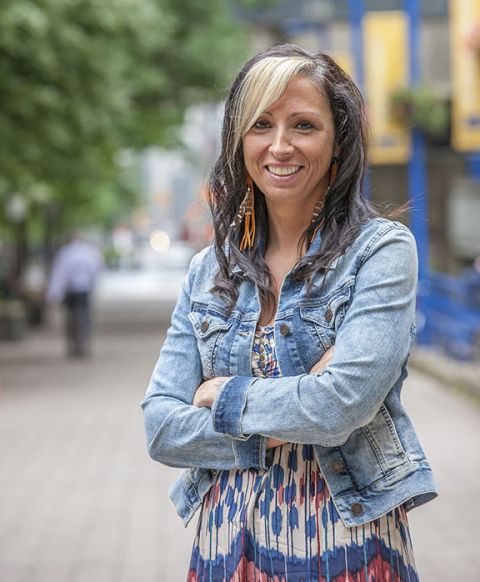
Truth and justice must come before reconciliation, and until Canada ends genocide and makes reparations to the victims, reconciliation cannot truly start. Dr. Pamela Palmater, Professor and Chair in Indigenous Governance, will address these issues in a lecture hosted by Feminist Legal Studies Queen’s (FLSQ) on November 18.
“We are thrilled to have Dr. Palmater share her growing insights into the generational and international challenges posed by genocide of Missing and Murdered Indigenous Women and Girls in Canada,” says Professor Kathy Lahey, who co-directs FLSQ with Professor Bita Amani.
“In addition to being one of Canada’s forefront experts on colonial laws,” Lahey continues, “Dr. Palmater is also helping create binding legal paths to a future in which the fullest recognition is given to Indigenous women’s substantive human rights in this country, and elsewhere, by engaging with international human rights tribunals as well as within Canada.”
“There can be no Reconciliation in Canada without Addressing Genocide” is the title of the lecture. Palmater will address the historical context leading up to the National Inquiry into Murdered and Missing Indigenous Women and Girls, both in terms of sexualized and racialized genocide and the advocacy of Indigenous women and their allies in getting the inquiry. She will also talk about the role international human rights treaty bodies have served in securing the inquiry and the role they must now play as independent experts and overseers of Canada’s constitutional and international obligations as the country moves into the transitional justice phase of ending genocide.
Palmater is a Mi’kmaw lawyer, professor, author and social justice activist from Eel River Bar First Nation in New Brunswick. She earned both a master’s and a doctoral degree specializing in Indigenous law from Dalhousie University. A faculty member with Ryerson University, she holds the Chair in Indigenous Governance.
This FLSQ lecture, taking place in room 201 in the Queen’s Law building at 1:00 pm on November 18, is open to the public. Students and faculty from across campus may have particular interests.
“Feminist Legal Studies Queen’s is seeing increasing interest in Indigenous and diversity issues on the part of undergraduate and graduate students, professors and staff from law and other faculties – as well as members of the Kingston area community – attending our lectures,” says Lahey. “Part of that long-term trend is due to the impact that Dr. Palmater’s first lecture here in 2012 had on all of us; her reputation precedes her return here this year.”
“An impressive number of FLSQ event attendees bring insights into Indigenous issues gained from earlier educational, work and community experiences, and are now actively bringing interdisciplinary and comparative interests to their current programs. Because Dr. Palmater is working on such pressing current issues, we are pleased that they will have this chance to hear directly from her what it takes to make substantive change through determined Indigenous and gender equality teaching, research, litigation and advocacy.”
By Lisa Graham